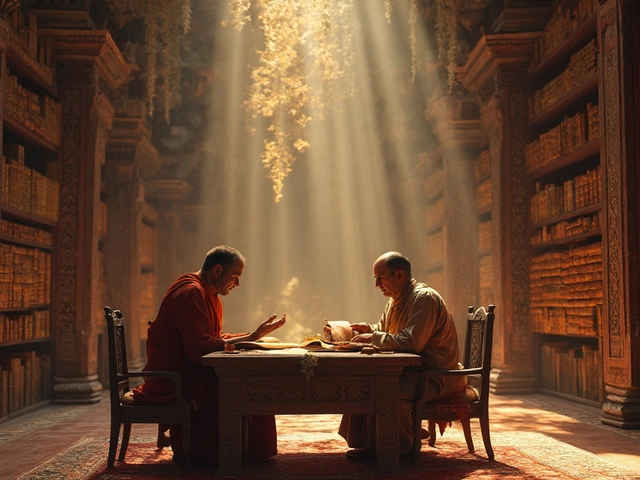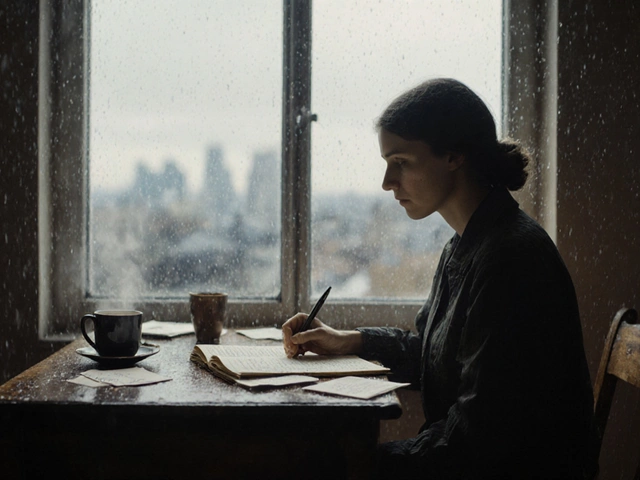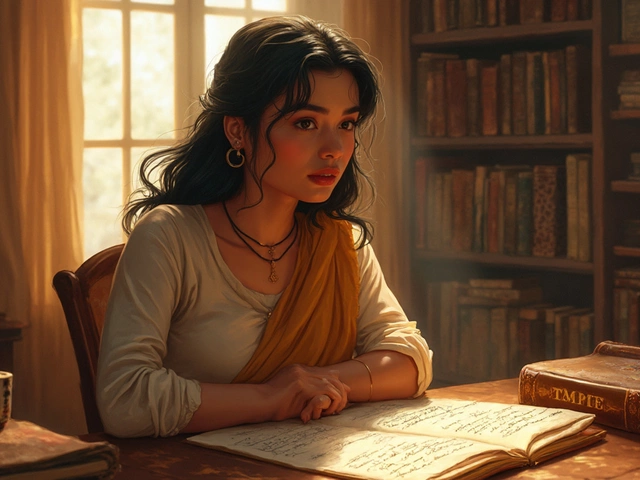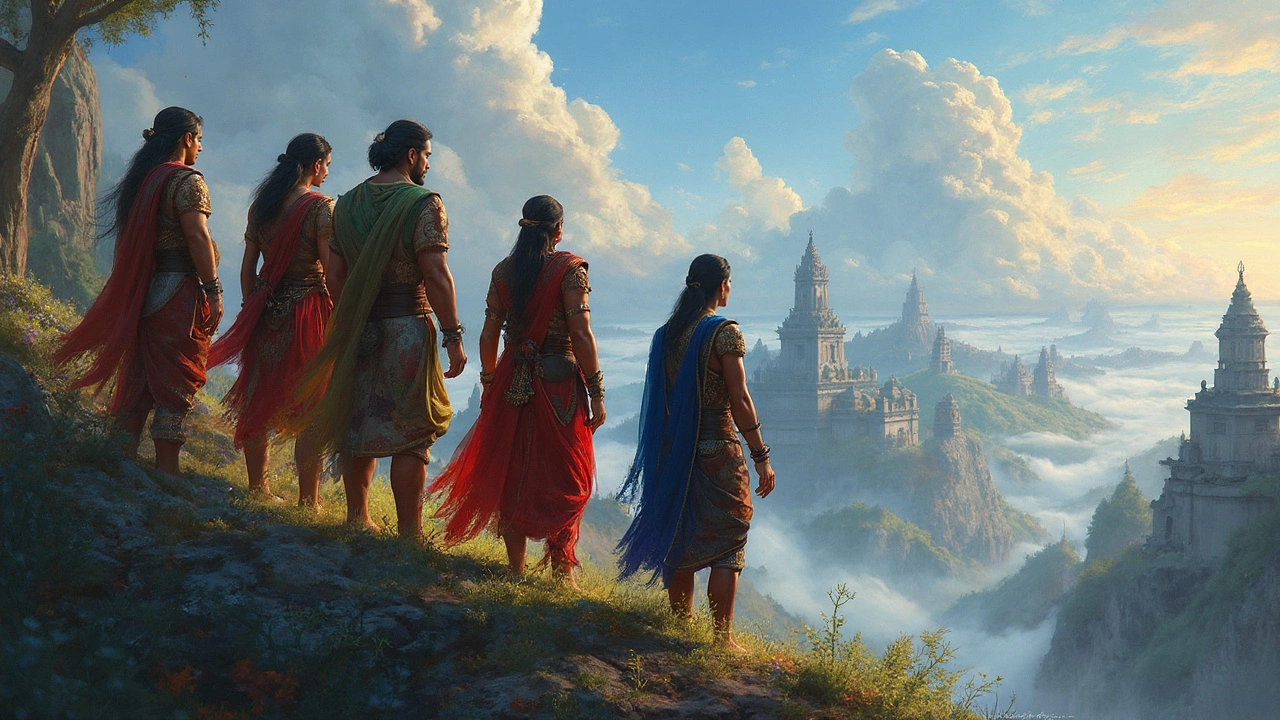
When people talk about epic fantasy novels, they mean stories on a massive scale. If you picture huge worlds, a cast of hundreds, and a good-versus-evil struggle that could outlast your dog’s morning walks, you’re on the right track. Epic fantasy books pull you far away from the everyday, dropping you into places where dragons fly and magic actually works.
The thing that separates epic fantasy from other stories? Scope. We’re not talking about a short quest in the woods—these books might cover entire continents, battles that shift the fate of empires, and a timeline that could span generations. Think of a story where small choices have world-shaking effects. Every chapter leaves you wanting more, and the journey feels like an adventure you join, not just read about.
- Defining Epic Fantasy
- Must-Have Elements
- Famous Series and Authors
- Tips for New Epic Fantasy Readers
Defining Epic Fantasy
So, what actually makes a novel epic fantasy? It’s not just about having magic or swords. Epic fantasy is a special kind of story where everything is bigger—huge worlds, long journeys, and a real sense that what’s happening could change everything. At its core, epic fantasy focuses on a battle between good and evil, usually with a hero who starts off ordinary but ends up having a huge impact.
Classic examples include J.R.R. Tolkien’s "The Lord of the Rings" or Brandon Sanderson’s "The Stormlight Archive." These books don’t just build a single place for you to visit; they lay out whole continents, with tons of cultures, languages, and histories. Most epic fantasy novels run thick—think 500–1,000 pages—with side plots and maps in the front just to keep track of where everyone is going.
One central thing: epic fantasy books almost always have worldbuilding at their heart. This means the author’s created rules for magic, unique creatures, different kingdoms, and sometimes even their own made-up languages. And instead of a story taking place in a week or two, these adventures can stretch across years, or even generations.
- Large, immersive worlds
- Multiple main characters and perspectives
- Complex, layered plots (not just a straight line)
- Large-scale conflicts (wars, ancient evils, massive quests)
- Unique rules for magic or superpowers
If you ever spot a book where you feel like you could move in, Set up camp, and have a completely different day than any other character, that’s a pretty good sign you’re in epic fantasy territory.
| Average Epic Fantasy Length | Average Cast Size | Average Years Covered |
|---|---|---|
| 700 pages | 20+ characters | 5–50 years |
It’s easy to see why the genre has such a big following. If you want to disappear for a while and come back feeling like you’ve traveled the world, epic fantasy is the way to go.
Must-Have Elements
If a story wants to call itself an epic fantasy, it needs to check a few boxes. These books aren’t just about magic and swords—there are certain ingredients that make them truly epic.
- Massive Worldbuilding: The world itself often feels like another character. Authors map out everything: countries, languages, political systems, even types of bread people eat. Take J.R.R. Tolkien—he wrote full languages for Middle-earth. You’ll spot detailed maps at the start of most epic fantasy novels.
- Large Cast of Characters: It’s never just one hero. These stories throw in kings, rebels, wizards, soldiers, and sometimes even talking animals. They have personal stories that cross and collide. George R.R. Martin’s fantasy novels have over a thousand named characters.
- Big Stakes: Tiny goals are out. In epic fantasy, we’re talking about saving the world or changing the fate of a whole civilization. There’s usually some world-ending threat or a struggle between good and evil.
- Magic Systems: Magic isn’t just for decoration—it shapes societies and drives the plot. Brandon Sanderson’s books, for example, have magic systems so detailed you could explain them at a science fair.
- Long, Twisty Plots: These books aren’t a quick read. Plots can get complex, with different storylines happening at once. Expect plot twists, betrayals, and surprises that keep you guessing for hundreds (or thousands!) of pages.
Check out this quick look at how some famous epic fantasy series stack up on those must-have elements:
| Series | Maps | Cast Size | Magic Detail | Pages (1st Book) |
|---|---|---|---|---|
| The Wheel of Time | ✔️ | Huge | High | 782 |
| A Song of Ice and Fire | ✔️ | Massive | Medium | 694 |
| Mistborn | Occasional | Modest | Extremely high | 541 |
If you spot these elements in a book, chances are you’re holding an epic fantasy in your hands. Don’t worry about keeping up with every subplot on your first try—half the fun is getting swept away by the scale.
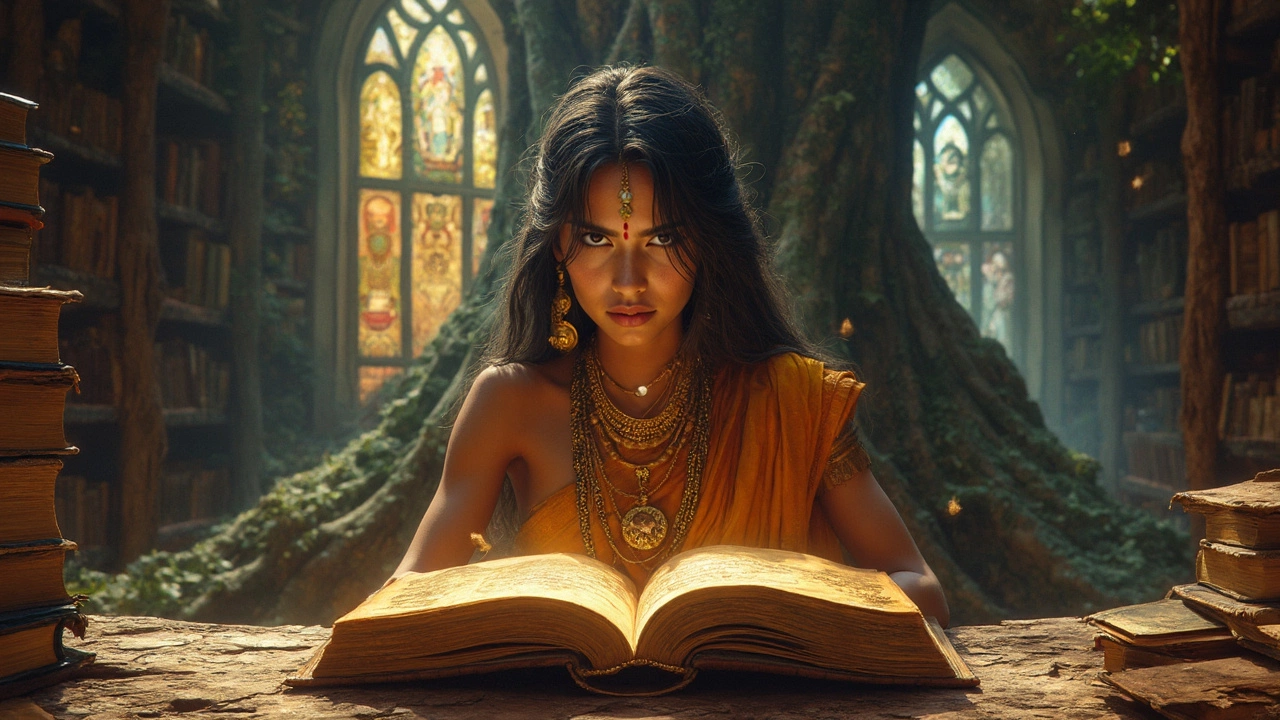
Famous Series and Authors
If you’ve ever asked a fantasy fan about the big names, three words show up a lot: epic fantasy giants. Some series have become so popular that even people who don’t usually read fantasy know their names.
The “Lord of the Rings” by J.R.R. Tolkien is pretty much the blueprint for modern fantasy novels. Tolkien built a world with its own languages, rules, and a struggle between good and evil that feels as real as anything in your history class. People still argue about Frodo and Sam, decades later. Fun fact—by 2024, “The Lord of the Rings” had sold around 150 million copies worldwide!
Next up, “A Song of Ice and Fire” by George R.R. Martin (yep, that’s the series “Game of Thrones” comes from). Martin changed the game by mixing unpredictable plot twists with deep, sometimes flawed characters. People love talking about who gets axed in the next chapter, and for good reason—you never really know who’ll survive.
Brandon Sanderson’s “The Stormlight Archive” is a favorite for folks who want epic battles and one of the most detailed worldbuilding attempts in modern fantasy. Sanderson’s magic systems are famous for being organized, with rules you can follow, almost like science.
You can’t talk about classic epic fantasy without mentioning Robert Jordan’s “The Wheel of Time.” It ran for 14 books, and Sanderson actually finished it after Jordan passed away. For readers who want a massive story, it doesn’t get much bigger.
These aren’t the only names. Here are a few more legit series and writers that rank high with fans:
- “Malazan Book of the Fallen” by Steven Erikson: crazy-deep lore and huge battles.
- “The Riftwar Saga” by Raymond E. Feist: a tight mix of epic war and character-driven plots.
- Robin Hobb’s “Realm of the Elderlings”: if you like following characters through life’s ups and downs, Hobb nails it.
If you care about popularity, check out this table showing rough worldwide sales or readership:
| Series | Author | Sales/Readership |
|---|---|---|
| The Lord of the Rings | J.R.R. Tolkien | ~150 million |
| A Song of Ice and Fire | George R.R. Martin | >90 million |
| The Wheel of Time | Robert Jordan | >80 million |
| Malazan Book of the Fallen | Steven Erikson | Millions (exact number unknown) |
| The Stormlight Archive | Brandon Sanderson | Millions (still growing) |
Honestly, if you start with one of these epic fantasy series, you’ll see what all the fuss is about. They set the standard for what makes epic stories bigger and bolder than just another magic-and-monsters tale.
Tips for New Epic Fantasy Readers
Diving into your first epic fantasy novel can feel overwhelming—these aren’t quick stories you finish between errands. If you’re looking at thousand-page books with maps, family trees, and names longer than your shopping list, don’t panic. Here’s how to make it easier and actually enjoy the ride:
- Start with the right series. If you’re brand new, grabbing a classic is a safe bet. J.R.R. Tolkien’s “The Lord of the Rings” is the granddaddy, but if you want something more recent, Brandon Sanderson’s “Mistborn” trilogy or Robin Hobb’s “Farseer” books have the worldbuilding and the adventure without drowning you in details.
- Don’t be afraid to use extras. Most epic fantasy novels come with maps and glossaries—actually use them. Got lost in the wilderness of Westeros? Flip to that map. Can't remember who Elend is? Check the character list. Even authors expect you to reference these things.
- Keep notes (if you want). Some readers jot down quick notes or track characters. You don’t have to, but with sprawling storylines, it helps.
- Pace yourself. These books are marathons, not sprints. Even the fastest readers take a while with something like “The Wheel of Time.” Take breaks, read other stuff between volumes, and don’t rush. That way, the story sticks better.
- Join a community. Online forums, book clubs, or even YouTube channels are packed with other fantasy novels fans. Discussions and fan theories can answer questions and make the plot clearer—plus, you’ll find out you’re not the only one mixing up character names.
If you’re curious about how complex these books get, check out the word counts of some classics:
| Book | Approximate Word Count |
|---|---|
| "The Lord of the Rings" Trilogy | 481,000 |
| "A Game of Thrones" (Book One) | 298,000 |
| "The Way of Kings" | 387,000 |
So yeah, these aren’t exactly short. But the payoff? Worlds you get lost in, characters you won’t forget, and stories you’ll end up recommending to everyone—even if they don’t ask!
